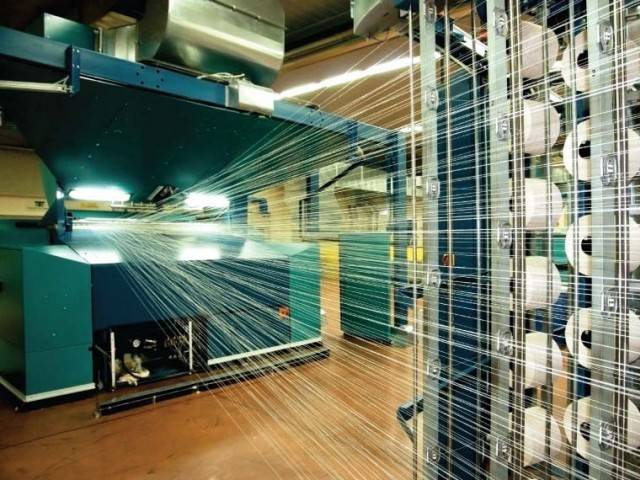LAHORE - All Pakistan Textile Mills Association (APTMA) Punjab has rejected outright increase in electricity tariff for textile industry, dubbing it unprecedented and apprehending a complete collapse sooner rather than later.
Spokesman APTMA Punjab has said that increase in electricity tariff from Rs9.18/KWH at present to Rs14.82/KWH under the new energy policy is rendering the Punjab-based textile industry inefficient; as Rs5.63/KWH (61.32 percent) effective from August 2013 in one go is a draconian measure against industry.
According to him, an average electricity tariff for textile industry in the South Asia region is below 10 cents against 14.4 cents in Pakistan. In actual, he said, tariff cost in China, India, Bangladesh and Sri Lanka is 8.5 cents, 11.3 cents, 7.3 cents and 9.2 cents respectively against 14.75 cents in Pakistan. Not only this, he added, Pakistan is also far ahead of the regional competitors in the interest rate bench mark, charging 9.00 percent against 7.25 percent in India, 6.00 percent in China and 7.75 percent in Bangladesh.
An exorbitant increase in electricity tariff is not less than a death warrant for Punjab-based textile industry, comprising 70 percent of the total. Already the Punjab-based textile industry is facing disparity in the inter-provincial electricity rates and becoming unviable fast with every passing day. Spokesman APTMA Punjab further feared that the industry would lose its strength of earning $13-14 billion exports per annum due to looming energy crisis amidst an indifferent attitude of policymakers. The new industrial tariff would wipe out the textile mills in Punjab altogether, he stressed.
He said such an unprecedented increase in electricity tariff is mounting the cost of production on account of electricity cost, interest rate and high labour cost due to comparatively low productivity comparing with India, Bangladesh and Sri Lanka. Spokesman APTMA Punjab said power tariff, financial burden and labour cost due to comparatively low productivity are set to cast dark clouds over employment, exports and growth and needs immediate review of situation by the govt.
He urged the government to withdraw increase in industrial tariff and let it sustain by making drastic cuts in interest rates so that growth and labour productivity issues could be overcome.
Thursday, April 18, 2024
Textile industry rejects raise in power tariff

PPP, PML-N parliamentary delegation in Beijing to boost ties
April 18, 2024
Eight more Sindh ministers sworn in
April 18, 2024
AGP’s audit report discloses irregularities in BRT project
April 18, 2024
National Assembly session tomorrow
April 18, 2024
EC announces election schedule for PP-269
April 18, 2024
Hepatitis Challenge
April 18, 2024
IMF Predictions
April 18, 2024
Wheat War
April 18, 2024
Rail Revival
April 17, 2024
Addressing Climate Change
April 17, 2024
Justice denied
April 18, 2024
AI dilemmas unveiled
April 18, 2024
Tax tangle
April 18, 2024
Workforce inequality
April 17, 2024
New partnerships
April 17, 2024
ePaper - Nawaiwaqt
Advertisement
Nawaiwaqt Group | Copyright © 2024





